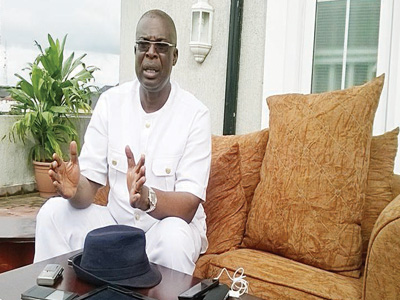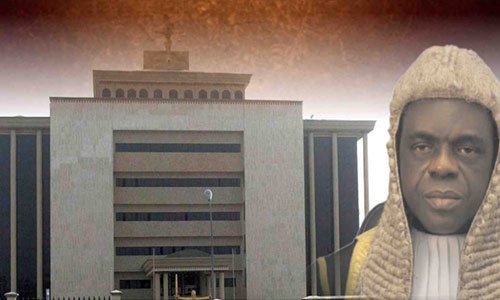
CURRENT REPORT BLOG in a significant legal development, Justice Donatus Okorowo of the Federal High Court in Abuja has delivered a verdict with far-reaching implications. The ruling, issued on June 13, 2023, disqualifies Mr. Timipre Sylva, the All Progressives Congress (APC) candidate for the Bayelsa State governorship election scheduled for November 11. Justice Okorowo’s decision stems from constitutional considerations and has sparked discussions on the limitations of political office in Nigeria.
The Constitutional Conundrum
Justice Okorowo’s ruling centers on a critical constitutional issue – the number of terms an individual can serve as a state governor. He noted that the 1999 Constitution, as amended, explicitly stipulates that no one should be elected as a governor more than twice. Timipre Sylva’s case raised concerns because he had previously been sworn in twice and served five years as the governor of Bayelsa State.
The Precedent
To support his ruling, Justice Okorowo cited a precedent-setting case, Marwa vs. Nyako, which was decided by the Supreme Court. In this case, the Supreme Court upheld the principle that the constitution’s provisions regarding term limits should remain inviolable. The drafters of Nigeria’s constitution were adamant that no one should be voted for as governor more than twice.

The Implications
The implications of this ruling are profound. By disqualifying Timipre Sylva from contesting the upcoming governorship election, Justice Okorowo has taken a firm stand in defense of the constitutional provision on term limits. This decision ensures that political officeholders adhere to the prescribed limits and prevents any attempts to extend their stay in office.
The Legal Challenge
The legal challenge that led to this ruling was brought forward by Mr. Deme Kolomo, a member of the APC. Kolomo’s action highlights the importance of citizens and party members holding political candidates accountable for adhering to constitutional principles.












